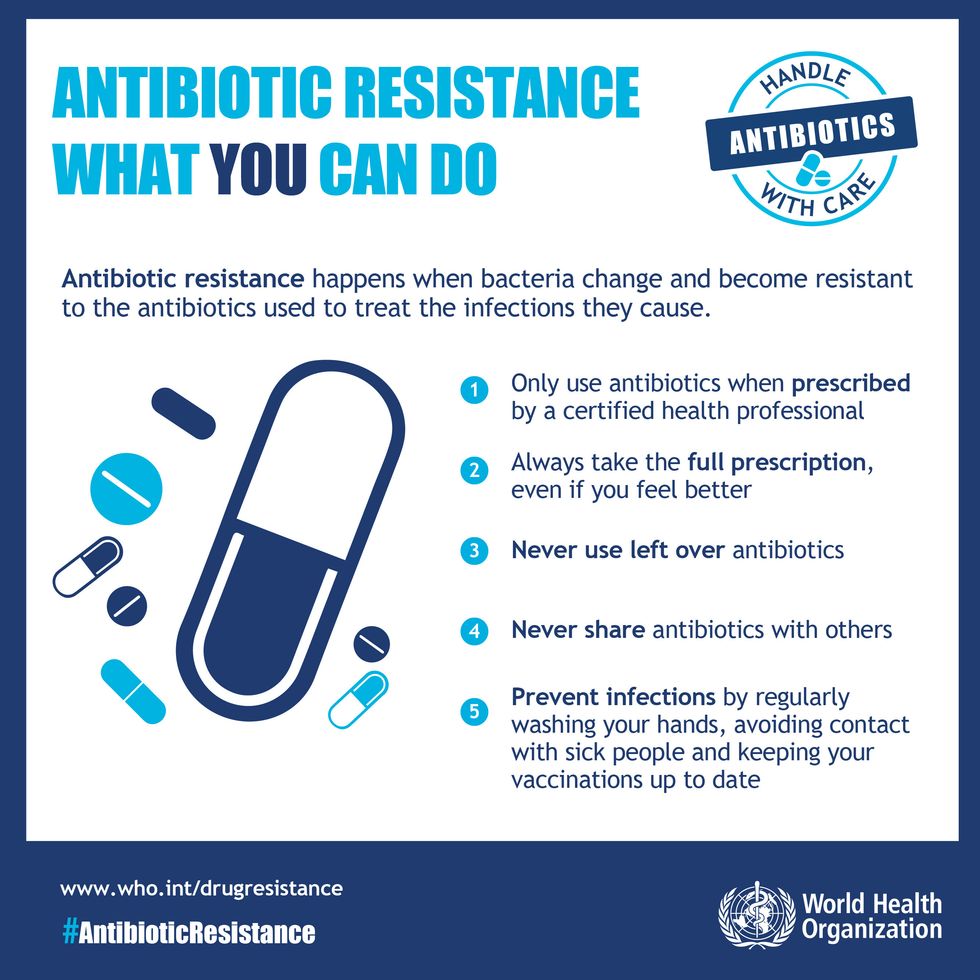As we dive deeper into winter it seems now is the time when everyone begins getting sick. Stress levels are at their highest, classrooms are filled with sniffles, the sound of coughing is always in the background and you soon find yourself feeling extra tired and extra paranoid you caught the "thing" going around. When winter sneaks up on us it's hard to avoid getting sick like everyone else. There are precautions to take but sometimes it really is unavoidable.
Now when we get sick it's not nearly as detrimental as it once was. About 70 years ago, if you happened to get an infection there was a very good chance it was going to kill you. That was at least until 1928 when penicillin was first discovered by Alexander Fleming. Since then antibiotics had flourished! They found a cure for what used to be severe and life-threatening. Since then, however, new discoveries of antibiotic classes have stagnated. Antibiotics today are not like they used to be when they were first discovered. The biggest reason? Antibiotic resistance.
Antibiotic resistance is when a bacterial pathogen built up resistance to an antibiotic and it no longer treats it. There are many factors that have led to antibiotic resistance and it's hard to pinpoint it to one reason or cause. Simply, there are many reasons bacteria have become resistant to antibiotics. However, Dr. Charles Penn from The World Health Organization believes, "The use of antibiotics at any time in any setting puts biological pressure on bacteria that promotes the development of resistance. When antibiotics are needed to prevent or treat disease, they should always be used. But research has shown that as much as 50% of the time, antibiotics are prescribed when they are not needed or they are misused (for example, a patient is given the wrong dose). This inappropriate use of antibiotics unnecessarily promotes antibiotic resistance."
While health professionals could be a big factor with misdiagnosing, the biggest area of concern is that of the public. A cold or flu is a viral infection and cannot be helped by antibiotics. Repeat with me "A COLD OR FLU CANNOT BE TREATED BY ANTIBIOTICS." Never take antibiotics for anything but bacterial infections when prescribed. When they first came out antibiotics were used for almost everything even seeming like an infection. Thankfully that has changed but there is still growing concern. Currently, there is an antibiotic, carbapenem, which treats hospital infections (like pneumonia) and other bacteria that are resistant to the common antibiotics. Horrifyingly enough, more and more bacteria are becoming resistant to it. By using these same antibiotics for decades it's no wonder resistance is being built up and more commonly so. The solution isn't necessarily finding new antibiotics as some believe but rather help prevent the infections in the first place.
There are precautions that health providers have stressed heavily recently in order to combat antibiotic resistance, especially during the flu seasons.
- Wash your hands (warm water, soap, and scrubbing)
- NEVER use anyone's "left-over" antibiotic
- NEVER take your own "left-over" antibiotic
- Take all the prescribed dose and in the time frame given by the provider
Disclaimer: I am not an expert by any means but this is a serious emerging problem. You can read more at the CDC, Medical News Today, and at Healthline.


















